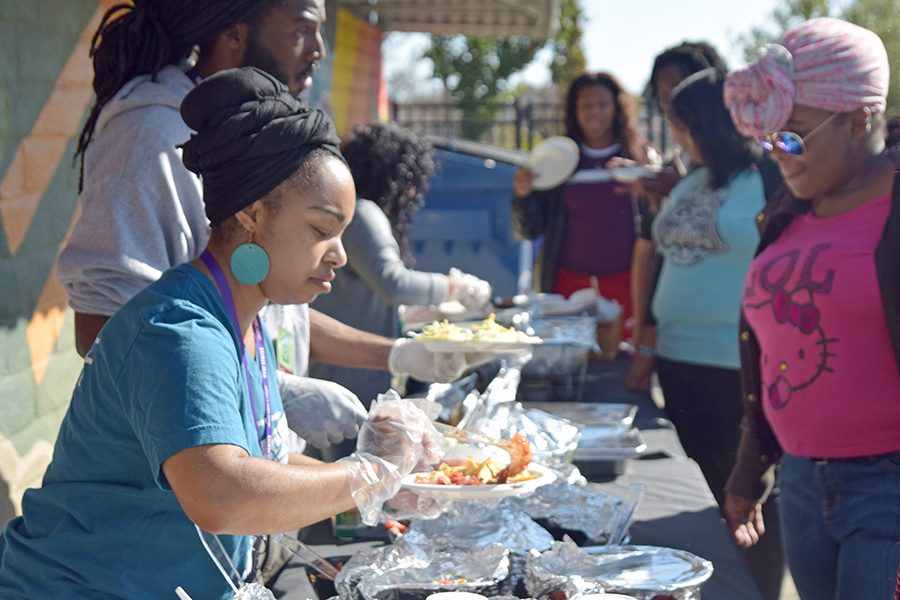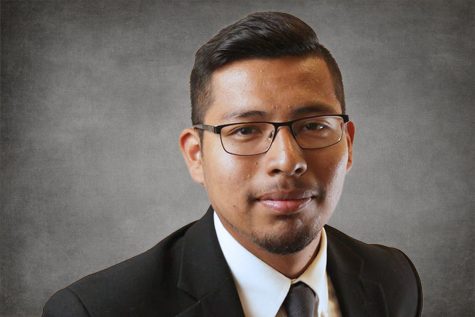Center nurtures young leaders, supports community justice
RYSE Center exposes youth to a leadership pipeline, enables social development
Oct 6, 2016
RICHMOND — The RYSE Center aims to be a free and safe space for the city’s youth grounded in community healing and social justice that empowers them to be able to love, learn, educate, empower and transform their lives and communities.
Clinical Counselor Joe Kim, of the center’s Community Health and Wellness Department, said the concept for the center is to help 13- to 21-year-olds develop their social and academic character while “kicking it” in a safe and comfortable place with peers from their community.
He said the center’s programs are created with youth empowerment in mind and with youthful perspectives, as young participants are involved in the actual planning of classes and activities. The RYSE Center’s programs expose youth to the reality that they can change their city, state and country by engaging themselves in positive activities with various people at the center.
“The youth will not get out of the streets if they don’t know anything but the streets,” Kim said.
He said the center has four departments that use an integrative program model allowing members to participate in any part of any department they want.
The advantage of participating at the RYSE Center is that there are many entry points where members can come for one program or class and get involved in another easily as well.
To become a member of the center, a person between 13 and 21 years old must come to the center and be registered in its online system free of charge.
Tours are available prior to registering and members do not have to live within the city of Richmond.
The center’s Community Health Coordinator Tania Palido said the great thing about the center’s program is that it is patient and gentle.
“It (the center) really helps (students who are) going into the world,” Palido said.
She said when she was a member of the center, her participation allowed her to deepen her political education. She came into the center thinking she wanted to be a journalist but found an interest in building young leaders for her community.
Kim said that when the concept of the center was conceived, community members surveyed Richmond High School students on their needs. Two repeated responses to the survey were that students wanted counseling and a recording studio.
Kim said, “That tells you something when youth ask for counseling.”
Community health and wellness
Kim said the Community Health and Wellness Department provides support in health, housing, social and emotional needs of the community in areas both clinical and non-clinical. The department helps youth “embrace their bodies both mentally and physically.”
He said the clinical division of the department focuses on treating mental health.
“The Alphabet Room is a weekly group meeting (about) gender rights and gender roles,” Kim said.
Members can seek counseling and join support groups if they are having (problems) or are stressed out.
The non-clinical side of the department is called Food Justice, he said.
He said the RYSE Center’s Food Justice department is inspired by the Black Panthers’ food program, as the RYSE Center believes in feeding the community, so it feeds its members for free.
Palido said the other component of Food Justice is teaching members about proper nutrition. The food available to youth in the community is not always what they need.
Kim said the center has a garden where they educate members on how to grow, cultivate and use herbs and vegetables.
The center offers classes like Tasty Tuesday, which demonstrates easily accessible, healthy foods, and recipes that are also culturally appropriate, nutritiously dense and feel good.
Media, arts and culture
Media, Arts and Culture (MAC) Department Director Rasheed Shabazz said MAC includes instruction and participation in different types of productions.
He said the department is divided into four sub-departments — visual arts, performing arts, video and music.
MAC offers classes where members can learn to edit videos or take photographs.
There are opportunities for students to perform at live events, direct music videos or create a mural.
Visual arts assistant Francisco Rojas said MAC gives members exposure to real life work experience.
Rojas said the MAC departments allowed him, a former member, opportunities to practice his skill in the center and outside of it.
The department has high quality recording equipment students can use, Shabazz said.
The studio is a place for young people to find and express their voices in a healthy way as opposed to unhealthy ways they could express themselves.
A mural painted by the MAC visual arts department was unveiled in the Richmond Art Center last weekend.
Shabazz said, “The process (to create the mural) was, we met with the people at the Richmond Art Center and then we brought in the young people and said what do you want to see up on the wall.
Then they sketched some different things. After the sketching process they went and painted the mural.”
MAC members have produced six musical albums that are available on their website Rysecenter.org.
He said all the projects in his department are student led. “Young people’s voices are included in the artistic process.”
Youth organizing and leadership
Kim said the RYSE Center is committed to providing young community leaders with a platform where they can organize events for their community peers.
He said the youth organizing and leadership department supports the center’s Youth Advisory Board, Richmond Youth Organizing Team and the RYSE Leadership Team (RLT), which are all on-site youth leadership groups.
Kim said the RYSE Leadership Team is a yearlong paid internship at the center.
“The older members organically become leaders, but we hold RLT members to a higher standard,” he said.
Youth Justice Director Stephanie Medeley said the RLT members are grounded in social justice principles and values.
Kim said the RLT interns partake in leadership trainings, develop their community organizing skills and coordinate educational events.
Palido said she joined the RYSE Center as an intern because she had an itch to learn.
She joined in 2009 as a team member of the youth organizing and leadership cohort.
She said writing articles, doing interviews and other tasks for the Richmond Post newspaper as a member of the center’s Youth Organizing Leadership department really deepened and enhanced her political knowledge.
Youth Justice Coordinator Maiika Marshall said she started as an RLT intern in 2008.
She said at first her position was as a recruiter for the center. She said she soon “fell in love” with RYSE, which sparked an interest in youth leadership.
Marshall said she is a product of RYSE’s leadership pipeline and that the RYSE Center is a place of consistency — it’s a family and it’s a second home, she said.
Education, career and youth justice
Marshall said the Education Career Department recently merged with the Youth Justice Department and created a “mega mix of a department.”
The merger makes a lot of sense since there are many problems around the school-to-prison pipeline that could be avoided if students are successful in their education and careers.
Medeley said the department holds workshops like Justice Rysing, which teaches members about their rights at the moment of being detained by law enforcement officers.
Kim said the center has a program with the Richmond Police Department that allows for first-time detained youth to be brought into the center and participate in the programs for eight weeks. This acts as a sort of rehabilitation, he said.
“The youth end up not getting their names in the system and in ways it breaks the school-to-prison pipeline,” Kim said.
Youth leadership also holds group meetings that focus on young men’s and women’s concerns and issues.
Medeley said the department wants to start a leadership pipeline that creates a bridge to be able to access educational support.
Career Pathway Coordinator Andrew Yeung said the traditional K-12 educational system is structured in a way where many students who don’t feel like they fit into the system may fall through the cracks and drop out.
The department has an open career room that helps members with anything related to getting a job or to their education.
Yeung said tutoring, help building a resume or even help writing an email are all available in this department.
He said they want members to know they have rights as students that will help them successfully get through the educational system.



